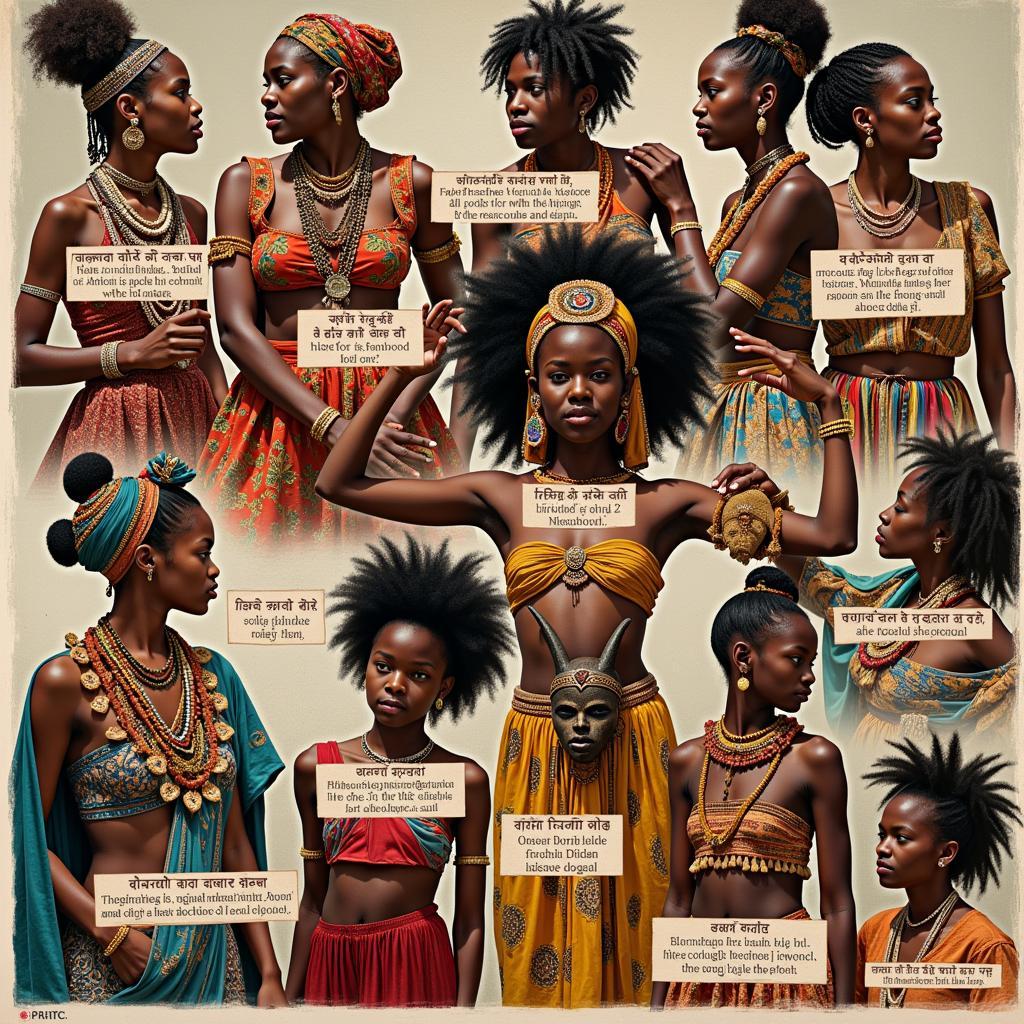African American Kids Talk: Exploring Language, Culture, and Identity
African American Kids Talk offers a fascinating glimpse into the rich tapestry of language, culture, and identity within the African American community. From the historical influences of African languages to the evolution of African American Vernacular English (AAVE), the way African American children communicate reflects a unique cultural heritage. This article delves into the nuances of how African American kids talk, exploring the linguistic, social, and cultural factors that shape their communication styles.
The Power of Language: How African American Kids Talk Shapes Their World
Language is more than just words; it’s a powerful tool for shaping identity, building community, and transmitting cultural values. For African American children, language plays a crucial role in their development and sense of belonging. The way they talk reflects their history, their experiences, and their connection to a vibrant and dynamic culture. african american books for kids can be a great resource for exploring these themes.
The Influence of African Languages on How African American Kids Talk
While AAVE is distinct from African languages, traces of these ancestral tongues can be found in its rhythms, cadences, and vocabulary. This linguistic connection underscores the enduring legacy of Africa in shaping the cultural identity of African Americans.
The Evolution of AAVE: A Unique Linguistic System
AAVE, often misunderstood and mischaracterized, is a complex and rule-governed linguistic system with its own distinct grammar, pronunciation, and vocabulary. It’s not simply “slang” or “broken English,” but a legitimate dialect with a rich history and cultural significance. Understanding the nuances of AAVE is essential for appreciating the linguistic creativity and cultural expression of African American kids.
Code-Switching: Navigating Multiple Linguistic Worlds
African American kids often seamlessly switch between AAVE and Standard American English, adapting their language to different social contexts. This code-switching demonstrates their linguistic dexterity and their ability to navigate diverse cultural landscapes.
Cultural Context: Beyond Words in African American Kids Talk
Communication extends beyond spoken words. Gestures, body language, and storytelling traditions play a vital role in how African American kids express themselves and connect with their heritage. african childrens literature arti offers a rich exploration of these cultural elements.
The Art of Storytelling: Passing Down Traditions
Storytelling has a long and revered tradition in African American culture. Through stories, children learn about their history, their values, and their place in the world. The oral tradition of storytelling keeps cultural memory alive and strengthens community bonds.
Music and Rhythm in African American Kids Talk
Music and rhythm are deeply ingrained in African American culture, and this influence is reflected in the way African American kids talk. The cadence, intonation, and musicality of their speech are often infused with the rhythmic patterns and expressive qualities of African American musical traditions. african music instruments can provide further insight into this vibrant musical heritage.
Nurturing Communication: Supporting African American Kids
Creating supportive environments where African American children feel comfortable expressing themselves is crucial for their development. Understanding and valuing their unique communication styles helps foster a sense of belonging and empowers them to embrace their cultural identity. african kid hairs can also be a topic of conversation, as it relates to cultural expression and identity.
Embracing Linguistic Diversity
Recognizing AAVE as a valid and valuable linguistic system is essential for creating inclusive learning environments. Educators and parents can play a vital role in promoting linguistic diversity and helping children develop strong communication skills in both AAVE and Standard American English.
Celebrating Cultural Heritage
Encouraging children to explore their cultural heritage through storytelling, music, and other art forms strengthens their sense of identity and fosters a deeper appreciation for their cultural roots. african folk tales for children can be a wonderful starting point.
In conclusion, African American kids talk reflects a rich and complex cultural heritage. Understanding the nuances of their communication styles is essential for appreciating the power of language in shaping identity, building community, and transmitting cultural values. By embracing linguistic diversity and celebrating cultural heritage, we can create supportive environments where all children can thrive.
FAQ
- What is AAVE?
- Why is code-switching important?
- How does storytelling preserve cultural heritage?
- What role does music play in African American communication?
- How can we support the linguistic development of African American children?
- What are some common misconceptions about AAVE?
- How can parents and educators promote cultural understanding?
Common Scenarios
- A teacher struggling to understand a student speaking AAVE.
- A parent wanting to help their child develop strong communication skills in both AAVE and Standard American English.
- A child feeling embarrassed or ashamed of their dialect.
Further Exploration
Explore more about African American culture and language through other articles on our website.
Contact Us
When you need assistance please contact Phone Number: +255768904061, Email: kaka.mag@gmail.com Or visit us at: Mbarali DC Mawindi, Kangaga, Tanzania. We have a 24/7 customer care team.

